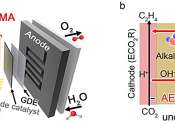Balancing the potential and pitfalls of solar-powered groundwater irrigation
In a bid to meet growing food production and energy needs in low- and middle-income countries, solar-powered groundwater irrigation is rapidly gaining ground. More than 500,000 solar pumps have been installed in south Asia ...
Jan 24, 2024
0
41









